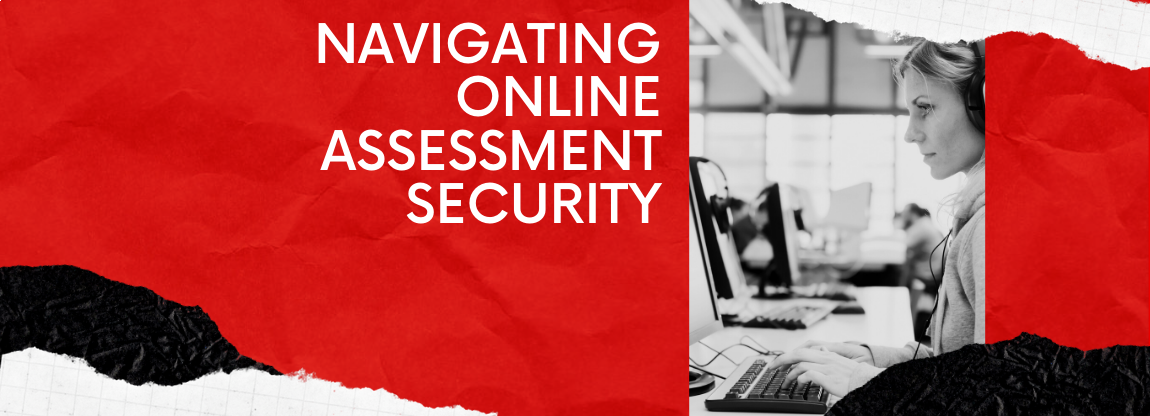Navigating Online Assessment Security
A common question these days among educators is "How do we keep students from cheating on online exams?"
With the rapid shift to online learning, the focus in many higher education institutions is around redesigning assessment, to suit fully online delivery, without invigilated exams.
This post explores a number of considerations around building out assessments online and how you can ensure they’re as secure as possible.
Accept that cheating will happen
Whilst many of us would like to think it won’t happen, experiences of those who have moved to online assessments already show that in many instances a small minority of students will cheat. Accepting this to start with and planning in some ways to combat both the temptation and the ability to be dishonest will mitigate feeling upset or betrayed.

Seeing the signs
Some instructors have highlighted situations where students were brazenly sharing Excel files with each other, without so much as changing the document owner. Others talk around experiences of students screenshotting questions or answers to class or course Whatsapp groups so, in unison, the scores are very similar. Other things to note are online tutoring sites that are supposed to support students, but can actually also provide short answers to questions in around the 60 minute mark. Here, you’ll need to look out for a difference in style than usual from your learners. Being aware of the signs can help and having a dialogue about it with colleagues can be fruitful in sharing strategies too.
Action
There are a number of quick wins to alleviate cheating and it’s likely that you’ll need to try out a combination of a few before landing on the mix that works for you and your course.
- Algorithmic questions
The capacity to use this will depend on your subject, but there are options to offer different learners different questions within a number of learning solutions. Using these means that each learner will see different questions so this removes the capacity of sharing the questions.
- Time allowances
Working out the time you expect your students to answer the questions in can be useful. This means you can set a timer so that they're not able to both figure out the answer and take a picture to share after. Many digital learning platform contain tools for this.
- Grouping
Grouping students into smaller groups may help, and then set these different groups different questions. Whilst this may take time to set up initially, we’ve heard instructors say it has yielded the right results and, now, is saving them time in the long run. - Structure
The days of handing in one significant piece of work every month or every term are behind us, and our exam or assessment structure may need to reflect this. Consider, perhaps, moving a 3-hour exam to a series of hour-long tests which will be more manageable for you and your learners. Question whether each assessment that counts for some percentage of the final grade is entirely necessarily and work around that. - Trial and error
Accepting that some parts of online assessment will work for you and some won’t is a useful starting point, and encouraging your students to come on the journey with you is also good for involving them. Being transparent about the fact you’re learning as you go can help build rapport and engagement with online testing. - Understanding platform capabilities
Instructors have highlighted the functionality of specific online learning solutions and their capacity to alleviate integrity issues. Some solutions have pre-built test banks, offer capacity to take tests in, and others have detailed reports to monitor students’ progress. It’s recommended that if you’re new to utilizing learning platforms that you look for one that can offer as much as possible under one roof, as it were, to eliminate multiple sign-in needs and to make student experience as seamless as possible. Some learning platforms, Connect included, have a number of tools that can bolster exam security from proctoring to originality checking.
The topics covered in this blog post are taken from a series of two Professional Development webinars held by McGraw Hill and hosted by Bo van der Rhee of Nyenrode Business University and Caroline Ennis of Birkbeck University.
To get you started on the tools that McGraw Hill have to help you navigate online exam integrity, please get in touch with our education consultant. If you’re looking for more insight on transitioning to remote learning, don't miss McGraw Hill Asia's on demand webinars.


